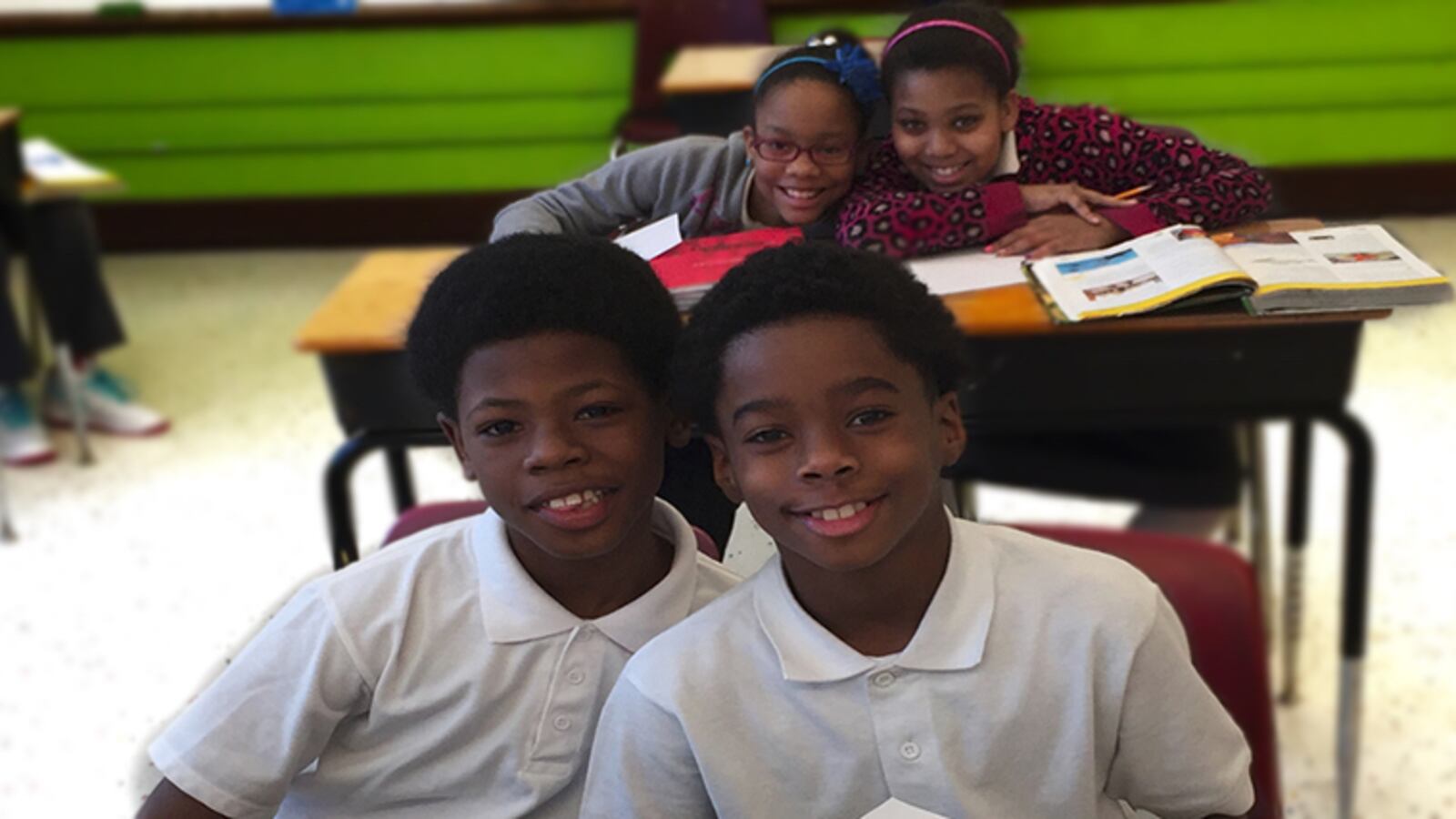Alice Thompson, who runs a charter school in Detroit, met a colleague from another charter in the city early last week. As they chatted, Thompson mentioned her plan to completely eliminate suspensions at her school, Hope Academy.
Within a few days, Thompson had visited the other school, Detroit Academy of Arts and Sciences, to train its staff in restorative justice and other techniques for managing student behavior.
“I met him on Monday, and he said, ‘Can you come on Friday?’” recalled Thompson, CEO of BFDI Educational Services, which runs Hope Academy. “That casual conversation made the kind of good connection where we’re sharing resources and sharing our talents.”
It wouldn’t have happened without a $3.5 million investment by the Childrens Fund in four Detroit charter schools.
Educators from those schools — Detroit Academy of Arts and Sciences, Jalen Rose Leadership Academy, Escuela Avancemos, and Hope Academy — came together last week in Detroit for group training paid for by the Childrens Fund. That’s when Thompson agreed to work with her counterparts at another school.
Increasing collaboration between the schools is just one of the goals of the investment. Leaders of the Childrens Fund hope the money will help build a blueprint for school improvement in Detroit, where policymakers and educators have struggled to combat the effects of child poverty, declining enrollment, and disinvestment.
The Childrens Fund is also paying for new curriculums, instructional coaches, computers, teacher retention bonuses, and a playground at one of the schools, among other things.
Jack Elsey, president of the Fund, said that after working with the schools for up to five years, he wants to be able to say, “here are four schools that went from good to great, and here’s what it took.”
If the investments are effective, they could help show the true costs of reducing chronic absenteeism, reducing suspensions, improving literacy, and retaining teachers. The Children Fund plans to spend $85 million in coming years to improve schools in the city. The nonprofit is funded by Quicken Loans, General Motors Corp., Lear Corp., and the Skillman Foundation (a Chalkbeat funder), among other donors.
The collaboration between Hope Academy and Detroit Academy of Arts and Sciences was a breath of fresh air for Thompson. Charter schools in Detroit tend to be small, standalone operations, and some charter educators say they feel isolated from other schools in the city.
Charter schools were designed as laboratories for new educational techniques, said Jim Goenner, president of the National Charter Schools Institute, who wrote a doctoral dissertation about Michigan’s charter school law.
But he agreed that many schools in Michigan, both district and charters, sometimes struggle to share best practices.
“That issue of isolation is real,” he said. “One of the ways people try to deal with that is by having peers that they can interact with.”
Some states — Massachusetts is one example — require charter schools to publish their best practices. Michigan has no such rule, but Goenner points out that charter school associations in the state hold conferences and training for their members.
Gabriela Chulevski, K-2 principal at Detroit Academy of Arts and Sciences, says it’s especially helpful to collaborate with other charters that face similar issues, such as chronic absenteeism.
“How are you overcoming students who might have been absent for a week?” she said, describing the questions she’d like to ask other school leaders in the city. “What plan do you have to make sure that they’re successful when they come back? Just having a thought partner to think things through, so that you’re not alone, is so important.”

